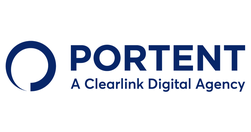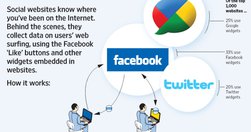Filter 861 resources:
- social media (446)
- facebook (105)
- media (96)
- content strategy (87)
- content marketing (84)
- blogging (82)
- promotion (81)
- content (76)
- news (62)
- disinformation (61)
- community (56)
- blog (48)
- enewsletter (44)
- marketing (43)
- twitter (39)
- psychology (37)
- science communication (34)
- publicsphere (33)
- tool (32)
- curation (31)
- algorithm (30)
- filter bubble (30)
- medium (29)
- journalism (29)
- fediverse (29)
- eu (29)
- storytelling (27)
- linkedin (24)
- ai (24)
- productivity (23)
- trump (22)
- trust (22)
- atprotocol (20)
- us2020 (20)
- ocm (20)
- metrics (19)
- science (18)
- communications (17)
- newsroom (17)
- identity (17)
- myhub (16)
- comments (16)
- influence (16)
- writing (16)
- regulation (16)
- design (16)
- pr (16)
- polarization (16)
- privacy (15)
- factchecking (15)
- video (15)
- strategy (15)
- social marketing (15)
- politics (15)
- bluesky (15)
- advertising (15)
- authenticity (15)
- troll (14)
- censorship (14)
- newsletter (14)
- covid19 (13)
- democracy (13)
- bloggingportal (13)
- innovation (13)
- web20 (13)
- engagement (13)
- audience research (12)
- us (12)
- editorial (12)
- native advertising (12)
- instagram (11)
- open web (11)
- outreach (11)
- moderation (11)
- organisation (10)
- brand (10)
- viral (10)
- presentation (10)
- multilingualism (10)
- creativity (10)
- platform (9)
- decentralised (9)
- mastodon (9)
- longform (8)
- audiovisual (8)
- addiction (8)
- instant articles (8)
- seo (8)
- llm (8)
- bloggingportal2 (8)
- attentionweb (8)
- visual (8)
- surveillance (7)
- narcissism (7)
- science journalism (7)
- snapchat (7)
- evidence-based policy (7)
- bxlsbbl (7)
- ai4communities (7)
- online architecture (7)
- propaganda (7)
- bot (7)
- sponsored content (7)
- data (7)
- cognitive (7)
- email (7)
- groupthink (7)
- gtd (6)
- realtime (6)
- tribe (6)
- business model (6)
- headline (6)
- semantic (6)
- persona (6)
- ux (6)
- clickbait (6)
- activitypub (6)
- blogger (6)
- 2ndbrain (6)
- substack (6)
- internal communications (6)
- blogpocalypse (6)
- conspiracy (6)
- b2b4me (5)
- data journalism (5)
- letters2eu (5)
- free speech (5)
- minimalist (5)
- brussels bubble (5)
- knowledge management (5)
- zettelkasten (5)
- crowdsourcing (5)
- chatgpt (5)
- cookies (5)
- interactive (5)
- echo chamber (5)
- delegitimise (5)
- domestic (5)
- sceptic (5)
- collective intelligence (5)
- partisan (5)
- participation (5)
- event (5)
- ec (5)
- image (4)
- mobile (4)
- data visualisation (4)
- open source (4)
- vandenbrande (4)
- pitch (4)
- blogactiv (4)
- gdpr (4)
- learning (4)
- humour (4)
- stream (4)
- buzzfeed (4)
- podcast (4)
- campaign (4)
- backfire effect (4)
- app (4)
- corporate journalism (4)
- chat (4)
- policy (4)
- eurosceptics (4)
- k4p (4)
- cms (4)
- brexit (4)
- startup (4)
- personal (4)
- analytics (4)
- cambridge analytica (3)
- infographic (3)
- election (3)
- gamification (3)
- europa (3)
- roi (3)
- example (3)
- happiness (3)
- ello (3)
- fail (3)
- report (3)
- mobocracy (3)
- powerpoint (3)
- transparency (3)
- outrage (3)
- screencast (3)
- cards (3)
- climate (3)
- crm (3)
- society (3)
- automation (3)
- uk (3)
- ea (3)
- antivaxxer (3)
- dissonance (3)
- fomo (3)
- cozyweb (3)
- publishing (3)
- ft (3)
- yanss (3)
- lobby (3)
- resilience (3)
- massive.wiki (3)
- messaging (3)
- twitter migration (3)
- ai prompt (3)
- europe (3)
- threads (3)
- usa (3)
- cory doctorow (3)
- meaning (3)
- buffer (3)
- idpi (3)
- training (3)
- augmented reality (3)
- unfinished (3)
- leaflet (3)
- laurens hof (3)
- wiki (3)
- sovereignty (3)
- google (3)
- persuasion (3)
- themes (2)
- signal2noise (2)
- indieweb (2)
- euroblog (2)
- micro.blog (2)
- australia (2)
- annotate (2)
- euractiv-com (2)
- fascism (2)
- pilot (2)
- machine translation (2)
- deletefacebook (2)
- prezi (2)
- eparticipation (2)
- mindfulness (2)
- employee engagement (2)
- cultural exchange (2)
- euractiv (2)
- supergirl (2)
- mojo (2)
- elon musk (2)
- knowledge graph (2)
- blacksky (2)
- klout (2)
- information architecture (2)
- ahoy2025 (2)
- ep (2)
- intranet (2)
- bbc (2)
- atprotocol lexicon (2)
- web2.0 (2)
- web (2)
- ethics (2)
- eurocrap (2)
- signaltonoise (2)
- rebelmouse (2)
- bias (2)
- radio (2)
- guide (2)
- atproto adoption (2)
- digital natives (2)
- future (2)
- autogpt (2)
- publicsector (2)
- tumblr (2)
- governance (2)
- team (2)
- machine learning (2)
- quora (2)
- gender (2)
- reddit (2)
- online (2)
- metaphor (2)
- obama (2)
- crisis (2)
- listicle (2)
- joan westenberg (2)
- enshittification (2)
- bullshit (2)
- network (2)
- europcom (2)
- farcaster (2)
- motivated (2)
- hate (2)
- portal (2)
- hr (2)
- theme (2)
- nytimes (2)
- robert putnam (2)
- guru (2)
- narratives (2)
- antiviral (2)
- planning (2)
- renee diresta (2)
- open science (2)
- bandwagon (2)
- education (2)
- wikipedia (2)
- scuttlebutt (2)
- populism (2)
- adversarial interoperability (2)
- memex (2)
- solid (2)
- media literacy (2)
- framework (2)
- blm (2)
- gpt-x (2)
- information (2)
- bundle (2)
- explainer (2)
- lobbying (2)
- paywall (2)
- network effect (2)
- hoaxy (2)
- andy matuschak (2)
- machine text (2)
- optimisation (2)
- pluralistic ignorance (2)
- russia (2)
- top3pods (2)
- blogtour (2)
- interoperability (2)
- antitrust (2)
- tools (2)
- dsa (1)
- web design (1)
- blockchain (1)
- digital transformation (1)
- visualisation (1)
- project management (1)
- virtual reality (1)
- nlp (1)
- confirmation bias (1)
- fear (1)
- collaboration (1)
- meditation (1)
- ui (1)
- business (1)
- garden (1)
- willpower (1)
- journal (1)
- seamful (1)
- infopocalypse (1)
- agile (1)
- inscrutable (1)
- infowar (1)
- youtube (1)
- meme (1)
- sentiment analysis (1)
- government (1)
- expertise (1)
- vote (1)
- culture (1)
- purpose (1)
- crowdfunding (1)
- ewrc2017 (1)
- demographics (1)
- personalisation (1)
- egovernment (1)
- pay4content (1)
- search (1)
- coral (1)
- tourism (1)
- perception (1)
- hoax (1)
- lean canvas (1)
- inoculation (1)
- html5 (1)
- local (1)
- ibm (1)
- conference (1)
- jobtodo (1)
- law (1)
- facebook live (1)
- ideation (1)
- film (1)
- network theory (1)
- immigration (1)
- empathy (1)
- livestream (1)
- microsoft (1)
- physics (1)
- transmedia (1)
- coda (1)
- social capital (1)
- share (1)
- scandinavia (1)
- career (1)
- health (1)
- how to (1)
- trending (1)
- conversation (1)
- freelancer (1)
- moments (1)
- impact (1)
- vox (1)
- authoritarianism (1)
- quartz (1)
- telegram (1)
- amp (1)
- slack (1)
- politicoeu (1)
- landing page (1)
- dark pattern (1)
- ambassador (1)
- newsfeed (1)
- circa (1)
- playbook (1)
- resources (1)
- wapo (1)
- christensen (1)
- toptask (1)
- silos (1)
- feed (1)
- mixed reality (1)
- solutions journalism (1)
- peakbot (1)
- crowdculture (1)
- youth (1)
- atlantic (1)
- useful (1)
- vine (1)
- slideshare (1)
- bitcoin (1)
- homepage (1)
- bestof2015 (1)
- plagiarism (1)
- partnership (1)
- spain (1)
- essena (1)
- litmus (1)
- title (1)
- support (1)
- polls (1)
- soonfeed (1)
- apple (1)
- hootsuite (1)
- eurosceptic (1)
- pressrelease (1)
- fuego (1)
- nuzzle (1)
- brainstorming (1)
- slidecast (1)
- zapier (1)
- seenthis (1)
- ssi (1)
- economics (1)
- networking (1)
- wellness (1)
- publication (1)
- nasa (1)
- context (1)
- api (1)
- millennials (1)
- technology (1)
- animation (1)
- traffic (1)
- iot (1)
- storyboard (1)
- responsive (1)
- raf (1)
- adaptive content (1)
- cardsort (1)
- liveblogging (1)
- boredom (1)
- shieldlaw (1)
- isismediablackout (1)
- google+ (1)
- twitter cards (1)
- paid (1)
- content partnership (1)
- buzz (1)
- evolution (1)
- expert (1)
- happeningo (1)
- calendar (1)
- taxonomy (1)
- content shock (1)
- gdrive (1)
- googledrive (1)
- tips (1)
- drive (1)
- length (1)
- cpms (1)
- ecas (1)
- register (1)
- smo (1)
- putin (1)
- spin (1)
- tabloid (1)
- usp (1)
- upworthy (1)
- ektron (1)
- fbpaper (1)
- paper (1)
- skills (1)
- seeding (1)
- expiration (1)
- tackk (1)
- white papers (1)
- workflow (1)
- trello (1)
- game (1)
- chipotle (1)
- native (1)
- twxplorer (1)
- timing (1)
- pinterest (1)
- social fiction (1)
- gmail (1)
- mybot (1)
- vlog (1)
- osmo (1)
- co-creation (1)
- learn (1)
- credibility (1)
- ugc (1)
- ep2014 (1)
- stanbol (1)
- apache (1)
- rebut (1)
- scale (1)
- eesc (1)
- colfdusion (1)
- conform (1)
- blogosphere (1)
- data void (1)
- ebook (1)
- eu09vs19 (1)
- adolescence (1)
- selfish (1)
- posse (1)
- dissemination (1)
- post-alpha (1)
- hosted (1)
- inbox zero (1)
- blackpr (1)
- balance (1)
- yeats (1)
- newsguard (1)
- threadapalooza (1)
- gatsby (1)
- roamresearch (1)
- data portability (1)
- philippines (1)
- curiosity (1)
- nz (1)
- deep fake (1)
- wikinews (1)
- research (1)
- ussr (1)
- intuition (1)
- cancel culture (1)
- qanon (1)
- pink slime (1)
- flicc (1)
- suppress (1)
- splinternet (1)
- fleeting (1)
- parler (1)
- diaspora (1)
- filecoin (1)
- gab (1)
- blocklist (1)
- planetary (1)
- trust net (1)
- early adopter (1)
- sensemaking (1)
- clubhouse (1)
- tiktok (1)
- spaced repetition (1)
- deplatform (1)
- ghost (1)
- mental health (1)
- myanmar (1)
- discord (1)
- metaverse (1)
- label (1)
- cookiepocalypse (1)
- fedwiki (1)
- presidency (1)
- dunbar (1)
- obsidian (1)
- semanticweb (1)
- publicsectorinformation (1)
- lisp (1)
- yellow-card (1)
- eurosplinternet (1)
- specialised (1)
- hungarian (1)
- accreditation (1)
- infosociety (1)
- monitoring (1)
- khub (1)
- comment (1)
- web3 (1)
- pkm (1)
- note (1)
- ite (1)
- pkgbook (1)
- fotl (1)
- small is beautiful (1)
- autosummarise (1)
- perplexity.ai (1)
- digital garden (1)
- dark forest web (1)
- ted chiang (1)
- version control (1)
- agent (1)
- compositional (1)
- thought leadership (1)
- sales (1)
- jasper (1)
- tone (1)
- quit (1)
- douglas rushkoff (1)
- jeff jarvis (1)
- znlive (1)
- nostr (1)
- sublime (1)
- synthesise (1)
- channel (1)
- patchwork (1)
- anuj ahooja (1)
- new public (1)
- pluriverse (1)
- vsop (1)
- pubhub (1)
- public affairs (1)
- will storr (1)
- richard dawkins (1)
- dopamine (1)
- arena (1)
- bluesky custom feeds (1)
- whitewind (1)
- ahoy (1)
- save social (1)
- eurosky (1)
- anisota (1)
- renée diresta (1)
- open letter (1)
- age verification (1)
- graze (1)
- middleware (1)
- atconnect (1)
- eurostack (1)
- alexandra geese (1)
Relevant Overviews
Overview: Content Creation & Marketing
At the end of the day, you’ll need content.
It’s not enough to have a content strategy – you also need content, and you need to get it out there if you want it read. News articles, interviews, blog posts, in-depth explainers, web pages, press releases... all have their own specific form and goals, and all need to be promoted differently.
But it’s not just a question of text: you’ll need an array of content to explain your message and get it out there. A news article for your website, for example, needs not only an illustration for the article itself, but additional images and even short audiovisual to get traction on social media. And it will need to be accompanied by a variety of texts, which can be tested, refined and boosted in real-time.
Need help? Get in touch.
More services: start with Communication strategy.
Relevant resources
A useful matrix of the pros and cons of 6 different approaches to meeting the single biggest challenge in content marketing - feeding the beast consistently
"Content Marketing is about devising, producing, and using content to market your products or services. You don't start Content Marketing from the content. You devise the content strategy, from scratch, around what you are marketing, and what form or forms of content will most effectively do that." A refreshing view from a fellow grumpy old …

"The rtule native ad: Content that users can readily identify as sponsored (as with tourist ads), but that is easy for them to engage with. " But I wonder how many people actually realise the Facebook story example is sponsored?
"Persona research is a science in itself, where the basic idea is identifying your audience. It is unavoidable to have a clean understanding of the audience's requirement, the discovery process, their knowledge and their interests in order to deliver appealing content, ultimately helping in your conversion process. This post focuses on how to c…

"Now that content marketing is the hot marketing buzzword, what are the critical elements your content needs to rise above the noise to drive measurable business results? To help you, we surveyed 19 top content marketing experts to get their advice and here's what they say." Good stuff here. PS. Point 1: "Stop being amazing, and start being…
"partnering with the likes of Facebook can also be a Faustian bargain: Media companies gain a deeper knowledge of their audiences and a broader access to them but simultaneously sacrifice the control and centrality they enjoyed in the era of mass media." In an era where "all organisations are publishers", are the observations in this report limi…
enter search terms to see snapshot of related activity in the latest 500 tweets. TwXplorer will break down the most common terms, hashtags, and links for you to filter and drill down further." An API would be awesome.

"some solid rules for when it's cool and when it's creepy to contact a journalist. Here are 10 tips on how to pitch a journalist on social media, largely based on the experiences of Mashable's editorial team. "

"I'm going to curate and occasionally publish a great little list of content links."


"Grabbing the attention and interest of online consumers can feel like a full-time job.... So what’s an author lacking infinite hours in a day to do? Incorporate automation! ... I use it to delegate low-payoff activities and focus squarely on what matters most – building relationships." - Five great tools for boosting the effectiveness of social…
"But the strategy of marketing itself as a fast food alternative to Big Food has clearly worked well for Chipotle. Now Chipotle is betting that it can sell even more burritos by lambasting the Big Food companies that drug animals in the name of profit. That's the message of a new short film and game the company launched Thursday that takes a cu…

"Trello's a fantastic free app which is fun to use, and makes planning content workflows a snap. The video outlines a workflow, and you can download the Trello board shown"
"the lifespan of your link is connected more to what content it points to than on where you post it: on the social web it’s all about what you share, not where you share it!"
"Almost six months after RebelMouse launched, the service is finding a home in the digital journalist’s toolbox."

If only RM also read the article you link to, auto-tagged it (auto-translating it if necessary) and provided faceted search, it'd probably provide 70-80% of a Hub. Neat tool for group efforts like bloggingportal, too.

"A recent study by Facebook analytics service EdgeRank Checker states that posts with hashtags do not have as great of reach than those without."

"Illustrator Steve Lowtwait and writer Michael Smith are telling a fictional story through social media that's centered around a protagonist called "Hawk Funn." They have set up real social profiles on Facebook and Twitter for fictional characters in the story, and they post about the characters' lives just like real people would. If you follow Ha…

Good questions on content strategy: "Is a content strategist someone who is a master of the English language, someone who can spin snappy marketing content into a flexible web design that responds to the screen real estate and capabilities of a mobile device? Or, is a content strategist someone who examines your current content lifecycle in an a…
"Content marketing is the art and science of using text and visual content to promote your business without being overtly sales-oriented. Content marketing can be in the form of articles, blog posts, white papers or eBooks as well as visual and audio content like videos, Google+ hangouts and podcasts. In contrast to newspaper writing, which repo…

"When a crisis like this happens, and you’re in the wrong, the mob is in charge of your brand. " - good advice for handling a crisis, and good techniques for monitoring sentiment

we are headed into the fourth phase of social media... will see streams become primary design elements of operating systems for computing and mobile devices... all media types will be resolved in place, in the stream
The ever-excellent For Immediate Release (episode 638) put me onto 10 things you still need to know about social media / social business, by Olivier Blanchard (aka the Brand Builder), which sounds like every other post you've ever hear of. But it's worth a read...
At last, an opportunity to blog about gardening and EU comms in the same post.
On November 8, MEPs will discuss '10 concrete political proposals' for creating the European public sphere via digital media, developed by IHECS (Institut des Hautes Etudes des Communications Sociales) and their partners via Socialeuropeanjournalism.com.
Loading more...



